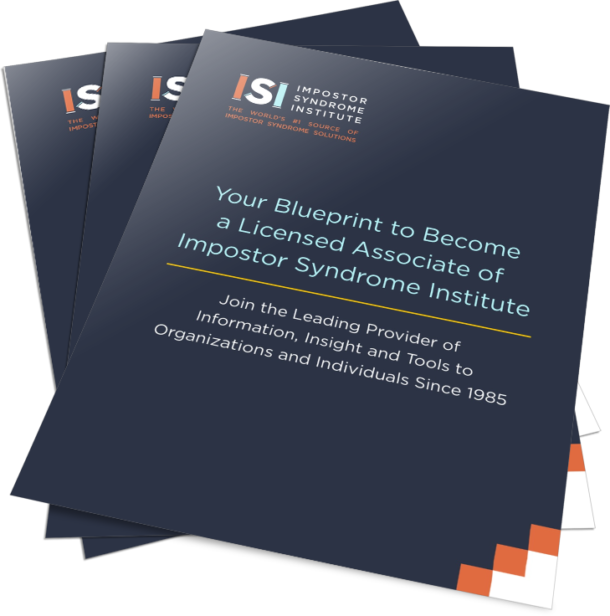Feel like a fraud? Workplace might be to blame
Even accomplished workers can fall prey to ‘impostor phenomenon’
Saturday, December 24, 2005
By Virginia Galt
It’s not uncommon for high achievers to sometimes harbour fears of inadequacy. Indeed, some organizational psychologists suggest that a little uncertainty is good if it spurs us on to greater efforts.
However, some workplaces are so “aggressively competitive” that they make even the most accomplished employees feel unworthy of their success, says Diane Zorn, a faculty development director at York University who has conducted research on the debilitating effects of “impostor phenomenon” — the constant fear of being exposed as a fraud despite a solid record of achievement.
The higher a person rises in an organization, the more he or she feels expected to “know it all,” says Ms. Zorn, who has conducted heavily attended workshops on the impostor phenomenon at Canadian universities for the past eight years and is currently working on a book.
Academics are particularly vulnerable — universities are far less collegial than they might appear from the outside, she says. But any demanding workplace culture, where high achievers are left on their own to sink or swim, can leave even the best employees feeling insecure — to the detriment of their happiness and their ultimate potential, says Ms. Zorn, whose title is course director in philosophy at the Atkinson faculty of liberal and professional studies at York.
The impostor phenomenon is “not just psychological” — it is rooted in workplace culture, she emphasizes.
An intensely competitive culture will reinforce any self-doubts a person might have if there is a lack of mentoring and a lack of collaboration, Ms. Zorn says. “The idea that no one there is going to help you . . . leads to feelings of isolation. That is often the case when you get into higher up positions.”
In the university setting, few interdisciplinary research projects are truly interdisciplinary, she says.
“They usually involve a lot of separate investigators — a lead one and a bunch of co-investigators — who go off and do their own thing and come back and meet and publish in their own area.”
In the business environment, as well, “I question how much genuine collaboration there is.”
Ms. Zorn says that when she instructs business students, “there are a lot of problems with group work. It is not as collaborative as it seems. There are often a few people trying to run the show.”
So given the realities of many work environments — the competition, the politics, the occasional The Globe and Mail: Feel like a fraud? Workplace might be to blame putdowns — how does one move ahead with confidence? There are steps an individual can take to bolster self-confidence and take credit for his or her achievements, rather than writing off success to good luck, being in the right place at the right time or undeserved promotion by a sympathetic supervisor, she says.
The first step, says Ms. Zorn, is to recognize whether you are suffering from a touch of impostor phenomenon.
Do you always deflect compliments about your work? Do you feel your success is undeserved and you will some day be found out? Are you afraid to ask questions for fear of looking stupid? Are you constantly comparing yourself to the superstars in your field instead of acknowledging your own accomplishments? If your self-confidence is a little shaky, or even if it isn’t, find a mentor, Ms. Zorn suggests.
If you cannot find someone to trust inside your organization, go outside and find someone whose judgment you respect to try out ideas.
In academia, some PhD candidates are now seeking out “dissertation coaches” to make sure they are on solid ground and that their work will stand up to rigorous academic challenge.
In business, more employees are turning to professional associations, outside coaches or informal support networks for honest feedback on whether they are on the right track, Ms. Zorn says.
Organizational psychologist Guy Beaudin of Toronto-based RHR International Ltd., says that, in a well-run organization, people are promoted on merit.
But there are situations where those who get promoted really are “faking it,” Dr. Beaudin adds.
“You will run across individuals who have been able to get by on interpersonal skills or their ability to play the political games within organizations and find themselves in roles of a great deal of prominence without really having the hard skills to deliver,” he says.
These people will often mask their incompetence by adopting an overbearing management style.
“Their whole leadership style is predicated on the fact that they don’t have either the skills or knowledge or expertise to truly do their job well, so their style is to be very demanding of their staff,” Dr. Beaudin says.
In most cases, however, candidates chosen for promotion will grow into their new roles, given the proper support, he says.
It takes time to gain confidence in a new role or a new project — nobody should expect to have it mastered on day one, nor feel like an impostor because they do not know all the answers, Dr. Beaudin says.
“For someone in a new role, the first couple of months are critical. It’s the time to be really intentional and disciplined about getting all the information you need. In the beginning, people will give you a lot of latitude to ask a lot of dumb questions,” Dr. Beaudin says.
“It gets more difficult after four or five months when people feel like you really should know what’s going on here.”
It is normal to have doubts, especially when taking on a new role, he adds.
“And some of that is actually quite beneficial. It can spur people to be more creative, to come up with better solutions. When you have people who feel they have to prove themselves, they will actually work harder and want to deliver a better performance,” he says.
“But when it goes too far, it leads to the impostor syndrome.”
Impostor syndromeAre you suffering from impostor syndrome? These are some of the signs, according to York University instructor Diane Zorn:
So what can you do about it? A website developed for those who suffer from such feelings, http://www.impostersyndrome.com, offers the following advice: Speak up, share your feelings. You will find you are not alone. Separate feelings from fact. Everyone feels stupid from time to time. “Just because you feel stupid, doesn’t mean you are.” Don’t be such a perfectionist. Forgive yourself when the inevitable mistake happens. Learn to ask for help. “Recognize you have just as much right as the next person to be wrong, have an off day or ask for assistance.” Recognize that everyone who starts something new feels off-base in the beginning. Tell yourself: “I may not know all the answers, but I am smart enough to find them out.” Take some risks. “Instead of considering ‘winging it’ as proof of your ineptness, learn to do what many high achievers do — view it as a skill.” |
© Copyright 2005 Bell Globemedia Publishing Inc. All Rights Reserved.


